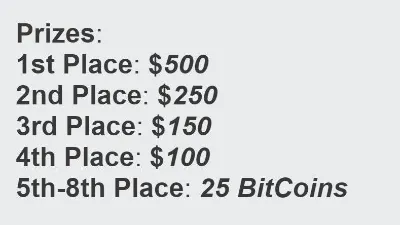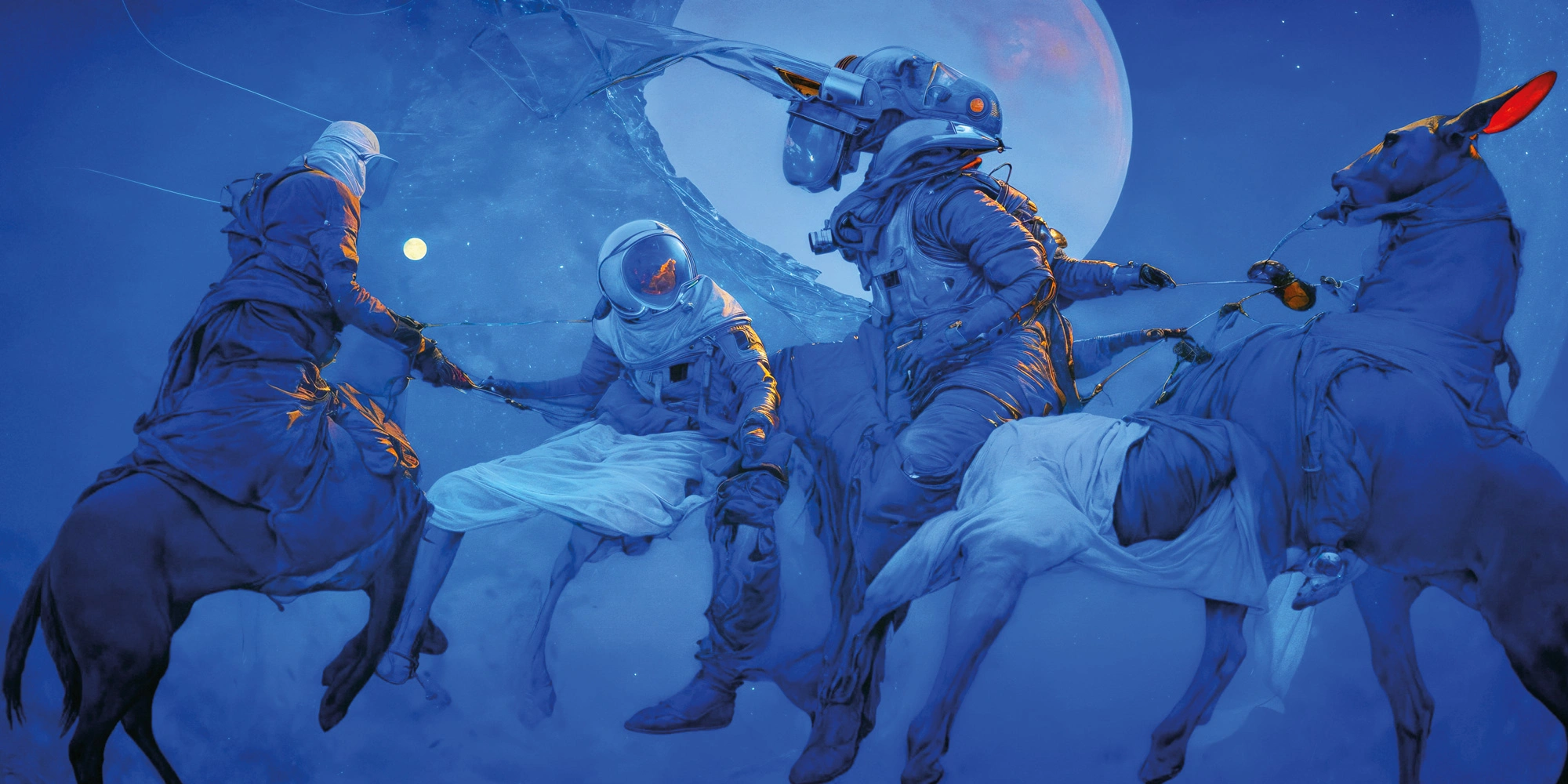STARLEAGUE
April 23, 2011
1BTC:$1.700100
- Artist
- Ganbrood
- Fact Date
- April 23, 2011
- Fact #
- 043
- Printing Specifications
- Paper / Stock
- Matt coat paper
- Print Finishes
- Gloss laminated
- Page Size
- 70cm x 35cm
As the world was starting to connect Bitcoin with darknet markets, more innocuous use cases were being explored. In 2011, StarCraft enthusiasts hosted a bitcoin-backed tournament for the Blizzard strategy game. While the first four finishers received USD, positions 5-8 received the consolation of 25 BTC apiece – a prize that was never claimed.
Bitcoin’s early history is littered with lost private keys, unclaimed bitcoins, and other ball drops that have left many ruing their foolishness. If only they could rewind the tape, they’d hold on to those bitcoins for dear life; they’d back up their private key; they’d listen to their friend the first time they mentioned BTC. Among the numerous should-haves and if-onlys is a curious tale from April 2011 that teaches the value of losing.
In early 2011, Clan Art of War (AoV) announced an online StarCraft: Brood War tournament called the AoV iCCup StarLeague. The event ran from February 9th to April 24th, 2011 and boasted a $1,000 prize pool. First place would win $500 in cash with second claiming $250 and $150 and $100 going to the next finishers respectively.

But here’s where the story gets interesting. Players who finished in fifth to eighth place would be rewarded with 25 bitcoins each.
The Greatest Prize That Never Was
The sponsor behind this twist was an early cryptocurrency gambling site called BTCSportsBet, whose promoter “Tenbagger” supplied the BTC and even wrote an explainer for players. Tenbagger introduced Bitcoin as “an anonymous and secure peer to peer digital currency” enabling instant online payments “without the hassle of a bank or PayPal,” free from any “third party big brother.”
He encouraged participants to “research” Bitcoin on their own and assured them it was “a legitimate online currency.” At the time of the finals in April 2011, 1 BTC was trading for less than $2, making each 25 BTC consolation prize only worth about $40.
The tournament played out till its April 24th conclusion, seeing Ryoo “Scan” Seung-Kwan walk away with the $500 top prize, followed by players hailing from Hungary, Russia, and Mexico who shared the rest of the cash pot. Which left the fifth to eighth-place finishers with their 25 BTC apiece.
Miklós “Sziky” Szilágyi finished in fifth place and did claim his coins – but is believed to have swapped them almost immediately for less than their market value. As for the other three BTC winners, they either didn’t claim or elected to take a cash equivalent rather than deal with the hassle of learning how Bitcoin worked.
From what can be determined, all four BTC prize-winners lived to regret their uncuriousness. Years later, when the story resurfaced, Sziky joked on the forums about his lost millions: “luck? no. happy end? no. Millionaire? No.” Ritt “Jumper” Srisawat, meanwhile, who finished in eighth place and didn’t bother collecting his prize, is believed to have resurfaced a decade later wondering to no avail whether he could still claim his coins.
In the event, not a single one of the four “lucky losers” held onto their Bitcoin reward in any form. That’s the thing about Bitcoin back then: to get rich you didn’t just have to be early – you also had to hold for the next decade straight. Few were able.
- Artist
- BTC On this day
- April 23, 2011
- Market Cap
- $10,182,919
- Block Number
- 106,570
- Hash Rate
- 0.786 TH/s
- Price Change (1M)
96%
- Price Change (3M)
284%
